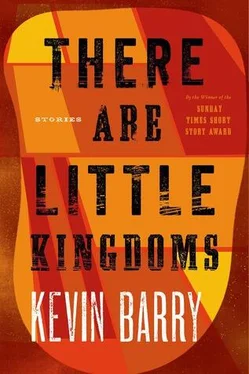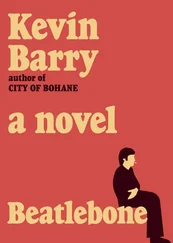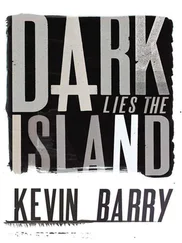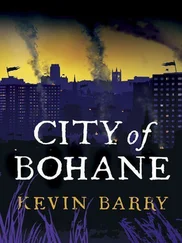Coll was back in the living room, flicking through his records. She whispered it to him. Fucksake! he said. Fucking typical of these people! There’s another deposit gone! He ran upstairs and saw that it was as she said — he didn’t and never would trust women’s accounts of things — and he went to fetch the water. When she had bent down to whisper to him, he turned just in time to see the swell of a breast beneath the dressing gown and the image now occupied his mind to a far greater degree than the non-event of a failed fire.
Martina turned to Mary Pearson, on a couch pushed back to the living-room wall, and she said:
‘Dave Costelloe? Yeah, but… kind of low-sized, isn’t he?’
‘I know. It’s the kind of way that if he was three inches taller he’d be a different man.’
‘Yeah but I do know what you mean, he’s kind of dirty?’
‘Oh, filthy! There is absolute filth in those eyes.’
‘Yeah, there is but… Jesus. Can you believe the time?’
‘Sunday’s a write-off. Come here, do you want to go and get some breakfast? I’m pretty sure Anton’s is open.’
It was eight o’clock, in Galway, on a Sunday morning. The wind had eased, to some extent. It would be a cold day with intermittent rain. Ollie drove the Corolla down the docks, his beany head swivelling left and right. He had people to see at the Harbour Bar, which kept market hours, and he had only the one wiper working. In rain, it felt as though the Corolla was gone half-blind. His shin was reefed open from the drainpipe but the wound had dried up some and, all told, it was unlikely to kill him. He passed by the house and wondered if there was anything still going on there. If things worked out at the Harbour Bar, he could knock back up and do some more business. But just as he drove past, the last of the stragglers emerged to the grey old streets and another wet morning of the reconstruction.
They say it takes just three alcoholics to keep a small bar running in a country town and while myself and the cousin, Thomas, were doing what we could, we were a man shy, and these were difficult days for Mr Kelliher, licensee of The North Star, Pearse Street.
‘The next thing an ESB bill will come lording in the door to me,’ he said. ‘That could tip me over the edge altogether. Or wait until you see, the fucker for the insurance will arrive in. Roaring.’
He took the rag to the counter and worked the rag in small tight circles, worked it with the turn of the knot and the run of the grain, he was a man of precise small flourishes, Mr Kelliher, and these flourishes were a taunt to the world. Even in desperate times, they said, proper order shall be maintained. The Kelliher mouth, like generations of Kelliher mouths before it, was bitter, dry and clamped, and the small grey eyes were deranged with injustice.
‘I’ve no cover,’ he said. ‘My arse is hanging out to an extraordinary degree. I’m open to the fates. It’s myself and the four winds. You’ll see me yet, boys, with a suitcase, at the side of the road, and the long face on. The workhouse! That’s what they’ll have to get going again for the likes of me.’
The clock considered twelve and passed it by with a soft shudder, as though it had been a close call. It seemed to be a fine enough day, out there beyond the blinds. Birds in the trees and flowers in the park and the first bit of warmth of the year. The torpid movement of late morning in the town, and the sunlight harsh in its vitality, as if it was only here to show the place up.
‘Nail me to a cross and crucify me,’ said Mr Kelliher, ‘and at least that way I’d go quick.’
The North Star was an intimate place, a place of dark wood and polished optics, with the radio tuned to the classical station for calm (it played lowly, very lowly) and the blinds let slants of light in and you’d see distant to the morbid hills, if you strained yourself. Myself and Thomas were sat there on the high stools. We were fine specimens of bile and fear and broken sleep. There was slow hungry slurping, and I finished what was before me.
‘Would you put on a pint for me, Mr Kelliher?’
‘I would of course, Brendan.’
‘Cuz?’
‘I will so,’ said Thomas.
Mr Kelliher never drank himself — not anymore — but he drank milky tea by the gallon, and a whistling kettle was kept in perpetual operation in the small private space adjoining the bar. Its whistle was a lonesome gull, or the wheeze of a lung, and it was part of the music of the house. Mr Kelliher attended to the stout. Each fresh glass he filled two sevenths shy of the brim, with the glass delicately inclined towards the pourer’s breast, so as the stout would not injure itself with a sheer fall, and he set them then, and there was the rush and mingle of brown and cream notes, and the blackness rising, a magic show you would never tire of.
‘Small industry in this country is being wiped out,’ said Mr Kelliher.
‘Who are you telling?’ I said.
‘It’s the likes of us who toil and scrape, Brendan. We’re the ones getting a clatter off the blunt end of a spade. Ignorance! That’s all you come up against around this place.’
‘Shocking,’ I agreed.
He removed our used glasses — averting his eyes from them, so decorous — and placed them in the neat dishwasher, where they would expect company. He filled to the top the fresh ones and with a curt nod put them before us and a note was slid across and we moved our lips wordlessly in thanks.
‘There are fellas in Leinster House would shame a brothel,’ he said.
We had no women. It was an awful lack in our lives. Mothers, daughters, lovers, wives, we had none of these at all, not a one between us, because women were a premium in the county, and in truth we were hardly prizetakers. It was from this lack of women that we had turned into auld women ourselves. Daily we regaled each other with our ailments and complaints, we talked of changes in the weather, and strangers in the town. Nothing could occur in the town of an insignificance beyond our gossip. If a wall got a lick of paint, it would be remarked in The North Star. Mr Kelliher winced, and stretched a liver-spotted hand up behind himself to investigate a region of the upper back, and his eyes leapt to the ceiling, and he said:
‘Would you ever get a class of a cold pain out a lung?’
‘Would you not mean a kind of a white heat, Mr Kelliher?’
‘Precisely so, Brendan!’
‘Searing,’ said Thomas.
‘Like a poker!’ said Mr Kelliher.
‘Arra,’ I said, and we all three of us nodded in sad resignation.
The North Star was discreetly situated in the town. You trailed down the steep decline of Russell Hill, passed Bord Gais and Hair Affair, you kept your head down passing the guards, you moved away from the commerce and traffic of the town, you hung an abrupt left into a narrow, vague, nothing-much sort of a street, and this was Pearse Street, its dullness a measure of the low esteem that particular martyr was held in hereabouts. The North Star was the only action on Pearse Street, and sunlight breached this narrow gorge for just one hour a day but now was the hour and Mr Kelliher came out from behind the bar and he shut the blinds fully against it. He was a small man neatly hewn, and sallow, with impressively planed features, like the carved dark aztec of a cliff-face, and he was of indeterminate age, it wouldn’t surprise you if he was forty-three or seventy-four, and there was something of Charlie Chaplin in the swing-along, quick-stepping gait, but you wouldn’t mention it.
‘Turned out fairly nice, Mr Kelliher.’
‘Pleasant enough looking, Brendan.’
‘After the night we put down.’
‘Sure the night was filthy altogether.’
Читать дальше












